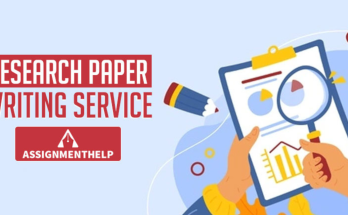Automation is gradually becoming mainstream in the face of impossible demands of perfection. Automation with the help of machine learning and AI is known to eradicate human error and add value to human labour. The exhaustive mundane work can be safely outsourced with a long and detailed training of a machine learning tool. And this training requires data, which is thankfully available in abundance and quantitatively increasing by the day. Due to the massive progress witnessed recently in data science and allied disciplines, automation is all aspects of data analytics given the presence of an adept workforce. This article will elaborate on the applications of automation in multiple aspects of data analytics, like setting up a nomenclature paradigm, data interpretation and analytics-based prescription. And figure out how automation in data analytics can affect the overall productivity of an organization positively.
What is automated data analytics?
Large data sets are usually not handled by humans till a certain point. The computer makes sense of this data by utilizing a pre-defined data model able to analyze and produce results. But the data an organization receives is rarely structured and it needs attention if it is to fit the preexisting model. Running simple scripts can resolve this issue automatically.
However, the data models are designed keeping usual and specific scenarios in mind. And requires a lot of data for efficient training so that it can deliver the promise with perfection. After the scripts are ready and the model is trained fully. Human labour can be removed from the equation and a computer can handle it all by itself.
How does it affect productivity?
Automation clearly reduces the need for active human participation if not absolutely necessary. For an employer, it saves a lot of liabilities in money otherwise provided as salaries to human employees. And for the employee, the prospect of automation saves time and energy which can be used in tasks machines can not take care of. Automation in a company thus indirectly but efficiently increases the value of human labour. In addition to that, the mundane world known for inviting unwanted exhaustion can be efficiently outsourced and the toil can be saved. This in turn will eradicate human errors as the human labour given alongside automation will most likely be free of exhaustion.
The steps of data analytics and automation
The process of data analytics can be segmented into three distinct phases, descriptive data analysis, predictive data analysis and prescriptive data analysis. The first phase concerns with the structuring of data before the data interpretation is initiated. In order to deploy the models and fit the data set in the model, efficient nomenclature and arranging scripts can be written for automation of this process.
The next step is concerned with data interpretation and analysis. After the data is automatically structured, the predesigned model can be applied and the fest is done by the computer automatically and accordingly. Which include visualization of the analysis. Automation is changing the way we work unraid nextcloud.
The final step concerns the devising of a new plan with the help of newly gained knowledge. And guiding the organization towards its goal through a safer path.
The removal of human error and the ability to divert human resources towards more productive and less exhaustive tasks are the biggest and most generous benefits of automation. And it is seen to benefit humanity greatly including helping us survive through the deadly pandemic.
Conclusion
Automation of data analytics can be initiated from the very beginning. But it is unwise to outsource humanly analysable data to the machines. At the beginning of any business, human touch and care are essential to set the pace and the tone. Additionally, the automation tools require a lot of data to train and become ready properly, based on the availability of all the amenities this process can take up to a very long time. Additionally, it is not always wise to deploy automation tools to small data sets as the small details that are often found in data sets can be overlooked to a detrimental conclusion.
Automation, like all the other human innovations, was conceived to make life an easier affair. But the ethical questions still pose a threat in the path of automation becoming mainstream. With the emergence of automation, job losses are bound to mount to new heights. However, unemployment, in this case, seems like a small sacrifice despite being menacing. What humanity can achieve by this small sacrifice is undoubtedly an incredible feat, full of promises and perfection.




